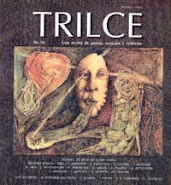
Mucho se ha hablado sobre el papel del editor en el resultado final de algunas obras y, aun, del estilo preciso y reconocible, por propio, de ciertos autores. Nadie duda de la calidad de la escritura de Carver, breve, precisa, certera, sin excesos, en fin; sin embargo, existen dudas acerca del papel jugado por Gordon Lish, editor, en lo que conocemos como estilo Carver. A partir de las revelaciones del papel jugado por Lish, inmediatamente se alzaron algunos para gritar a los cuatro vientos que el estilo Carver sería más bien fruto del "ojo" de Lish, es decir, de la calidad de la tijera de éste frente a los manuscritos de aquél, es decir, que la escritura era de Carver pero, el estilo, de Lish ("...the basic idea was that he had changed some of the stories so much that they were more his than Carver's...", uauuu, no es menor la afirmación).
Los invitamos a leer un rico texto aparecido en The New York Times a propósito de lo que en esta ocasión llamaremos con el neblinoso nombre de "El Oscuro Caso Carver", jejejeje. Los que quieran buscar cinco patas donde en realidad hay tres, podrán tener sus cuatro en este artículo-reportaje. Lo claro es que Gordon Lish pudo editar, aunque jamás escribir los textos de Carver: para podar hay que tener el árbol y el árbol tenía por nombre Raymond o Ray para los amigos.
"The Carver Chronicles
By D. T. Max
Published: August 9, 1998. New York Times
For much of the past 20 years, Gordon Lish, an editor at Esquire and then at Alfred A. Knopf who is now retired, has been quietly telling friends that he played a crucial role in the creation of the early short stories of Raymond Carver. The details varied from telling to telling, but the basic idea was that he had changed some of the stories so much that they were more his than Carver's. No one quite knew what to make of his statements. Carver, who died 10 years ago this month, never responded in public to them. Basically it was Lish's word against common sense. Lish had written fiction, too: If he was such a great talent, why did so few people care about his own work? As the years passed, Lish became reluctant to discuss the subject. Maybe he was choosing silence over people's doubt. Maybe he had rethought what his contribution had been -- or simply moved on."









No hay comentarios:
Publicar un comentario